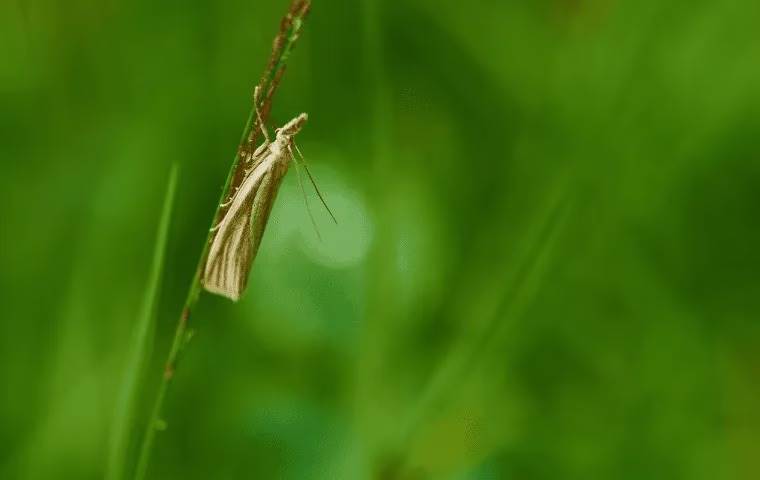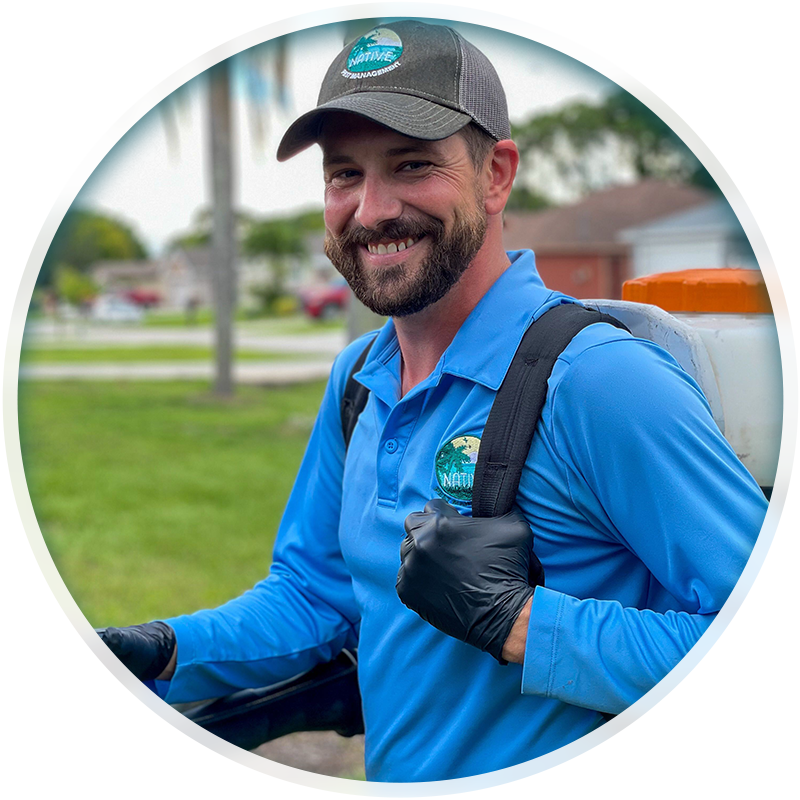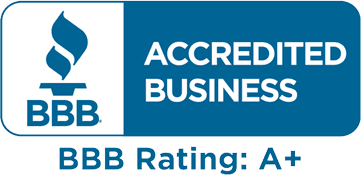
Sod Webworm Identification in Florida
Identifying Webworms in Florida

In sunny South Florida, residents are no strangers to dealing with various pests that can wreak havoc on their lawns and gardens. One such pest that has increasingly become a nuisance is the webworm. Commonly known to infest trees, these persistent pests have now found a new ground to conquer: Florida lawns.
Webworms, which are actually the larval stage of a type of moth, can cause considerable damage as they feed on a variety of plants and grasses. As their name implies, the most distinctive sign of their presence is the telltale web-like structures they create. While this may not sound alarming, the sheer level of destruction they can inflict on Florida lawns has quickly made them a pest to be reckoned with.
As residents battle these voracious pests, it's crucial to understand the extent of their impact and seek out effective management and control strategies. The onus is on homeowners to stay vigilant and monitor their lawns for early signs of infestation, ensuring that they can address the problem before it spirals out of control.
Key Takeaways
Webworms are an increasingly common pest causing damage to Florida lawns.
A thorough understanding of sod webworms’ impact and presence is essential for effective management.
Homeowners must remain vigilant and utilize prevention strategies to avoid infestations.
Understanding Webworms
Webworms are a common pest in Florida and throughout the United States, affecting various species of grass and trees. In this section, we will explore the identification of these pests, their life cycle, and habits to better understand how to address their presence in gardens and lawns.
Species Identification
Webworms consist of two main species that are prevalent in North America: the Tropical Sod Webworm (Herpetogramma phaeopteralis) and the Fall WebwormMoth. Tropical Sod Webworms primarily target warm-season turf caterpillars, while Fall Webworms prefer the foliage of deciduous trees.
Tropical Sod Webworm (Herpetogramma phaeopteralis): These moth caterpillars are small, olive green to tan, and grow up to 1 inch long. The adult moth is a light brown and has a wingspan of about 1 inch.
Fall Webworm Moth: The Fall Webworm can be identified by their fuzzy, white or light brown caterpillar bodies, with a length of up to 1.5 inches. The adult moths may vary from pure white to white with dark spots, and have a wingspan of about 1.5 inches.
Lifecycle and Habits
Webworms go through four stages in their lifecycle: eggs, larvae, pupae, and adult moths. The life cycle can last a few weeks, but certain conditions can speed up or slow down the process.
- Eggs: Female moths lay several clusters of eggs on the leaves' surface, especially on the undersides. Tropical Sod Webworm eggs are oval and translucent, while Fall Webworm eggs are round and pale yellow.
- Larvae (Caterpillars): After hatching, the caterpillars of both species feed on the leaf tissue or turfgrass. Fall Webworm caterpillars also enclose parts of the foliage within their webbing, creating unsightly nests.
- Pupae: The caterpillars eventually settle down in the soil or leaf litter to pupate and form cocoons.
- Adult Moths: Once the moths emerge from the pupal stage, they begin searching for a mate to reproduce. Most species have multiple generations per season.
Both webworm species are most active during nighttime hours when temperatures are cooler. Maintaining a healthy lawn and regular monitoring can help prevent extensive damage caused by these pests.
-
Do mosquito control services work?
When you choose to have professional mosquito control performed on your property, you will see a dramatic reduction in the mosquito populations around your yard.
By maintaining monthly treatments, these results will continue. We are so confident in the effectiveness of our mosquito control programs that we guarantee them with free follow-up treatments if needed in-between regular services.
-
How do you control mosquitoes in the yard?
At Native Pest Management, our technicians start their mosquito control service by inspecting your landscape for standing water. We then treat the standing water we find every month with biological larvicides to prevent mosquitoes from breeding.
Then, we perform a pet safe mosquito misting of the landscape to eliminate adult mosquitoes and prevent mosquitoes from finding harborage in your landscape. This guaranteed service should last approximately 30 days.
-
Can pest control get rid of mosquitoes?
No pest control treatment will eliminate every mosquito on your property.
However, with our two-step mosquito control service, we have been told by product manufacturers to expect a 90% reduction in the mosquito population.
Since we believe in the effectiveness of our mosquito control programs, we guarantee them with free follow-up treatments if needed in-between regular services.
Sod Webworms’ Impact on Florida Lawns
Webworms pose a significant threat to the health and appearance of lawns in Florida. The various grass types found in the region experience varying levels of damage, with a notable impact on the aesthetic and economic importance of well-maintained lawns.
Recognizing Damage
Webworms create brown patches on affected lawns by feeding on the foliage. They chew off grass blades close to the ground, leaving behind a ragged and uneven surface. Defoliation can lead to the weakening of grass, making lawns more susceptible to other issues such as disease and drought stress.
Common signs of webworm damage include:
- Small, irregular brown patches that expand in size
- Thinning grass in affected areas
- Visible webs in the grass during early morning or after rainfall
Affected Grass Types
In Florida, the most commonly grown grasses are Bermuda grass, Zoysia grass, St. Augustine grass, Centipede grass, and Bahia grass. Webworms can cause damage to all these grass types, but the extent varies depending on the specific species.
Although some grass types may be more resistant to webworm damage than others, it's still essential to keep an eye out for signs of infestation and take proactive steps for prevention and control. Maintaining a healthy, dense lawn is the best way to minimize the impact of webworms on your Florida lawn.
Management and Control
Preventative Practices
Effective integrated pest management starts with prevention. Mowing your lawn regularly helps; keeping turfgrass at an appropriate height can discourage webworm infestation. Remove any plant debris or fallen leaves to eliminate their hiding spots. Additionally, maintaining healthy turfgrass and plants by providing proper irrigation and fertilization can further strengthen resistance against webworms and other pests.
Biological Treatments
For biological treatments, introducing natural predators like birds or beneficial insects can help control the pest complex.
One popular solution is using the bacteria Bacillus thuringiensis (Bt), which targets the larval stage of webworms, without harming other organisms. However, using Bt as your only means of pest control may not be effective, as it breaks down in sunlight, washes easily off of leaves, and is ineffective against older webworms.
Releasing parasitic wasps may also contribute to the reduction of webworm populations, as they specifically target webworm eggs and larvae.
Chemical Solutions
When choosing chemical control options, it's important to consider the impact on non-target organisms and the environment. Insecticides should be used as a last resort, and if possible, opt for those that are less toxic to beneficial insects.
Remember to follow the label instructions carefully and be cautious of possible buildup in resistance. Always prioritize integrated pest management (holistic pest monitoring and prevention) to create a balanced approach and minimize reliance on insecticides.
Prevention and Monitoring
Lawn Maintenance Tips
Proper lawn maintenance is essential in preventing and monitoring webworm infestations in Florida. A healthy lawn is more resistant to pests, so focus on fertilization, irrigation, and thatch management.
Fertilization: Avoid excessive use of nitrogen-rich fertilizers, which promotes rapid growth of tender grass that is attractive to webworms. Instead, opt for slow-release fertilizers and follow the guidelines of your local county extension office.
Irrigation: Less frequent but deep watering encourages thicker and deeper grass root systems, which are less prone to webworm damage. Water your lawn early in the morning to avoid prolonged dampness on grass blades and allow ample time for your lawn to dry before nightfall.
Thatch: Regular dethatching helps to maintain a healthy lawn by reducing the amount of dead grass and organic material. A thin layer of thatch can be beneficial, but too much thatch creates a favorable environment for webworms to thrive in.
In addition to these maintenance practices, keep your grass height between 2.5 to 4 inches to discourage webworms from laying eggs on your lawn.
Recognizing Early Signs
Early detection is crucial for effective webworm management. Regularly monitor your lawn for any signs of webworm activity, such as the presence of silky webs or grass blades chewed at the tips. You can also look out for webworm larvae or their droppings in the thatch layer.
To help preserve the natural predators of webworms, like birds, spiders, and parasitic wasps, avoid using broad-spectrum insecticides. Instead, you can create a welcoming environment for these predators by providing food, water, and shelter in your garden.
For guidance and additional resources, consider reaching out to your local county extension office. They can offer advice on managing webworms, including recommended products for chemical control.
If the infestation is limited to a small area, you may spot-treat the affected zone rather than treating the entire lawn. This approach minimizes the impact on beneficial insects and prevents unnecessary chemical applications.

Why Choose Native Pest Management?
We Exceed Customer Expectations
-
Pet Friendly & Environmentally ConsciousNative Pest Management applies our pest control products with the safety of your family and pets in mind! We also offer eco-friendly pest control to protect your family and the planet.
-
Local Service ProfessionalsSince 2015, we have served communities in West Palm Beach and all throughout South Florida. Our team is fully licensed, insured, and vetted.
-
On TimeOur team will not only arrive on time, but they’ll also go above and beyond when providing service. It’s what makes us one of the top rated pest control companies in Florida! We strive for complete customer satisfaction every time.
-
Get a 100% Free Estimate
Whether you currently have pests in your home or simply want to start professional pest prevention, take the first step to a pest-free life, and contact us today for your free pet-friendly pest control quote.
-
“Warren took his time with the servicing and was very knowledgeable! Exceptional customer service. I will be requesting him each time.”- Montiea Singletary
-
“Excellent service by Chino from Native Pest Management. Chino went above and beyond to make sure we understood everything about the service and kept us very informed during the process.”- Brand Gonzalez
-
“Truly professionals at what they do. very respectful very knowledgeable and great attitude.”- Jorge Acosta
-
“I called and spoke to the manager, who was polite and courteous, and even though it cost them money to come back out and spray, they did not charge me again, and I was very thankful.”- S. Williams
-
“Dale is the absolute best in the business of pests! My sister and I personally ask for him every single time because he always goes above and beyond.”- Zariah Graham
-
“The technician was very professional. He explained things thoroughly and put me at ease with what was about to happen in my home.”- Anthony Diaz
-
“Native pest management always exceeds my expectations! The people who answer the phone are so nice and accommodating and make scheduling a breeze! The techs are always so nice and do a great job.”- Michelle Cato
-
“Extremely impressed with the technicians I met today. Tony and Jamie. Very thorough and customer oriented. I am expecting great things for my trees and plants.”- Curt Kredo

Native Pest Management's Blog
Want all the latest news or updates? Browse through our blog to read our most recent posts and featured articles.







